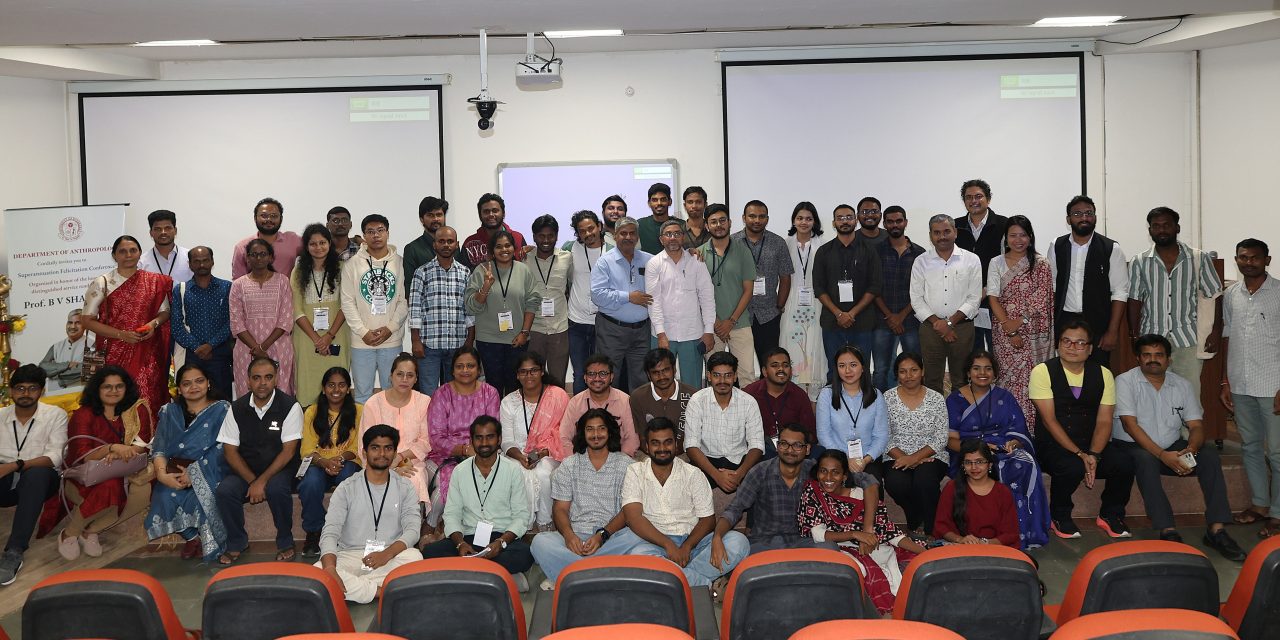The Department of Anthropology at the University of Hyderabad organised a two-day national seminar on “Anthropology in Contemporary Practice: Pathways for a Sustainable Future” on 26–27 September 2025. The event, held in honour of Prof. B.V. Sharma, was both a tribute to his distinguished career and a platform for dialogue on the future of the discipline. Over two days, the seminar featured 73 research papers and eight invited talks, attracting eminent scholars, experienced faculty, and emerging researchers from across the country.
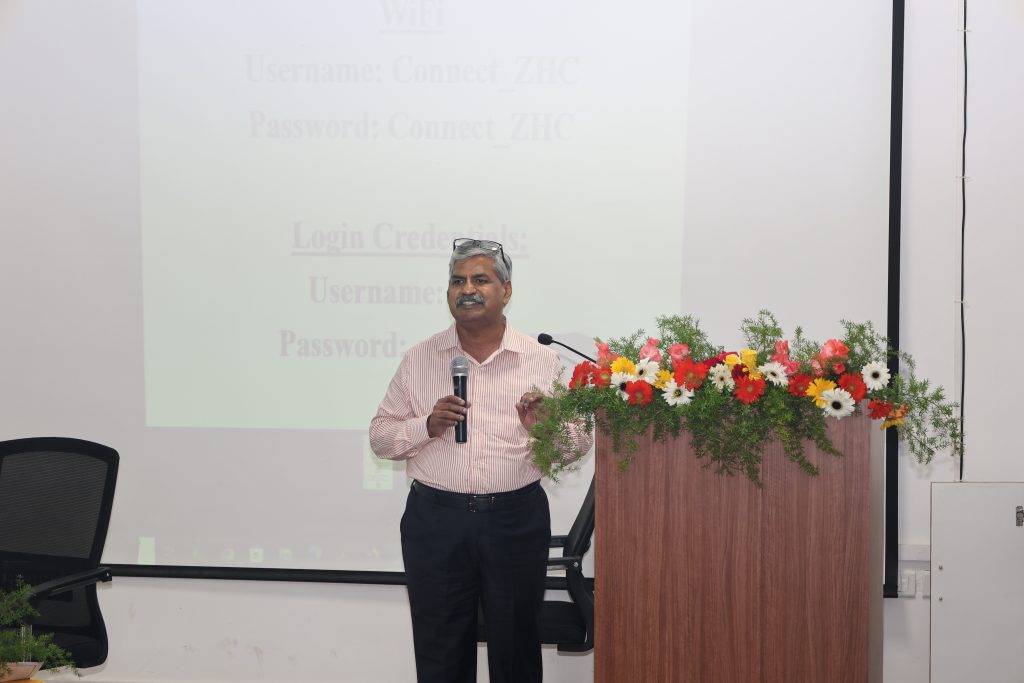
Honouring a Legacy: Inaugural Session
The opening session combined celebration with reflection. Prof. K. Suneeta Rani (Dean, School of Social Sciences, UoH) welcomed participants and highlighted Prof. Sharma’s role in shaping research within the school. Prof. M. Romesh Singh (Head, Dept. of Anthropology) spoke of the department’s strong academic reputation and its role in nurturing students who have gone on to make an impact well beyond the university.
Dr. Nookarapu Srinivasu, as a convener, stated about the structure, significance, and the expected outcomes of the seminar, while also underlining anthropology’s responsibility in addressing contemporary concerns such as climate change and digital transformation, while Dr. Nanda Kishore Kannuri traced Prof. Sharma’s long service, leadership, and mentoring of generations of scholars.
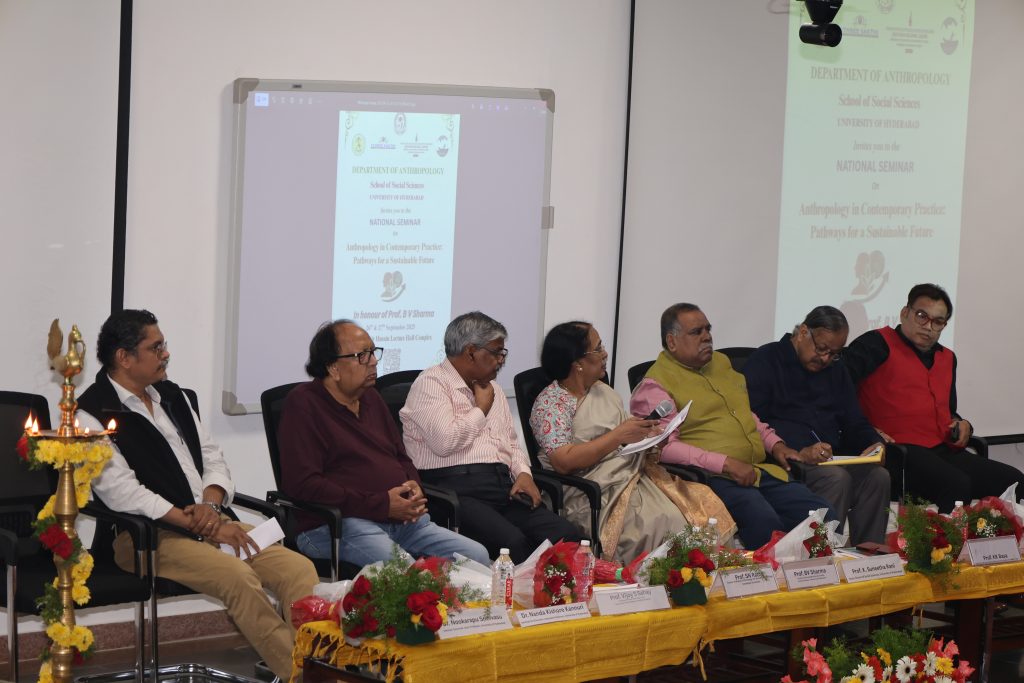
Senior academics added personal tributes. Prof. K.K. Basa praised Sharma’s critical and enthusiastic spirit, while Prof. Vijoy Sahay and Prof. S.N. Ratha reflected on anthropology’s potential to bridge divides in difficult times. In response, Prof. Sharma spoke warmly of his journey as the first PhD graduate in anthropology at UoH, his years of collaboration with students, and his current projects with the Anthropological Survey of India. The session ended with Prof. S.M. Patnaik (University of Delhi), who reminded the audience that anthropology must remain rooted in responsibility and democratic values.
A Wide Canvas of Research
The seminar’s academic sessions captured the breadth of the field. Papers examined healing traditions in Sikkim, indigenous medicine among Andaman tribes, stress in transitional societies, nutrition and health in rural Telangana, and drug rehabilitation among women in Manipur. Other panels focused on breast cancer in Kerala, menstrual health among tribal communities, and the cultural traditions of indigenous groups in central and northeastern India. Together, the sessions illustrated anthropology’s relevance to both academic inquiry and urgent social challenges.
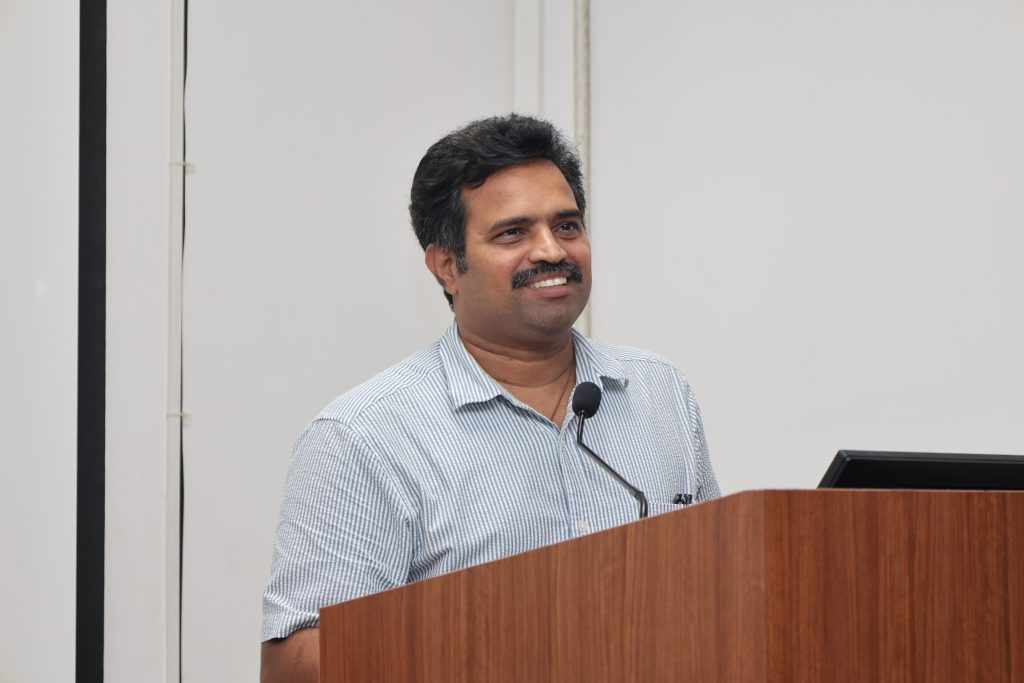
Voices of the Invited Speakers
The invited lectures provided a broader intellectual frame. Prof. R. Siva Prasad (UoH) emphasised the importance of Indigenous Knowledge and argued for protecting it through new technologies such as Indigenous AI. Dr. Navina Jafa spoke about cultural skill mapping and heritage landscapes, while Prof. Subho Roy (ISI Kolkata) explored infertility and the social implications of assisted reproductive technologies.
On the second day, Prof. K.K. Basa drew attention to museums as instruments of decolonisation, highlighting institutions such as the Remember Bhopal Museum and the Peace
Museum in Imphal. Prof. P. Vijaya Prakash (Andhra University) introduced Maritime Anthropology concerning SDG-14 and the lives of coastal communities, while Prof. S. Gregory (Kannur University) critically examined affirmative action. In his concluding remarks, Prof. Vijoy Sahay urged Indian anthropology to move beyond borrowed ideas of sustainability and to build theories rooted in its own contexts.
The Round Table
The Round Table on “Anthropology in Practice: Shaping Policy and Development through Academic Insights”, chaired by Prof. Sharma, was one of the most engaging sessions. Senior scholars, including Prof. Subho Roy, Prof. Vijaya Prakash, Prof. Amitabh Pande, Prof. Vijoy Sahay, and Prof. Venkata Rao, debated anthropology’s visibility in policymaking. They pointed to the gap between research and governance, the need for constructive engagement, and the importance of clear communication with policymakers. Proposals ranged from preparing policy briefs for government bodies to expanding training in Applied Anthropology.
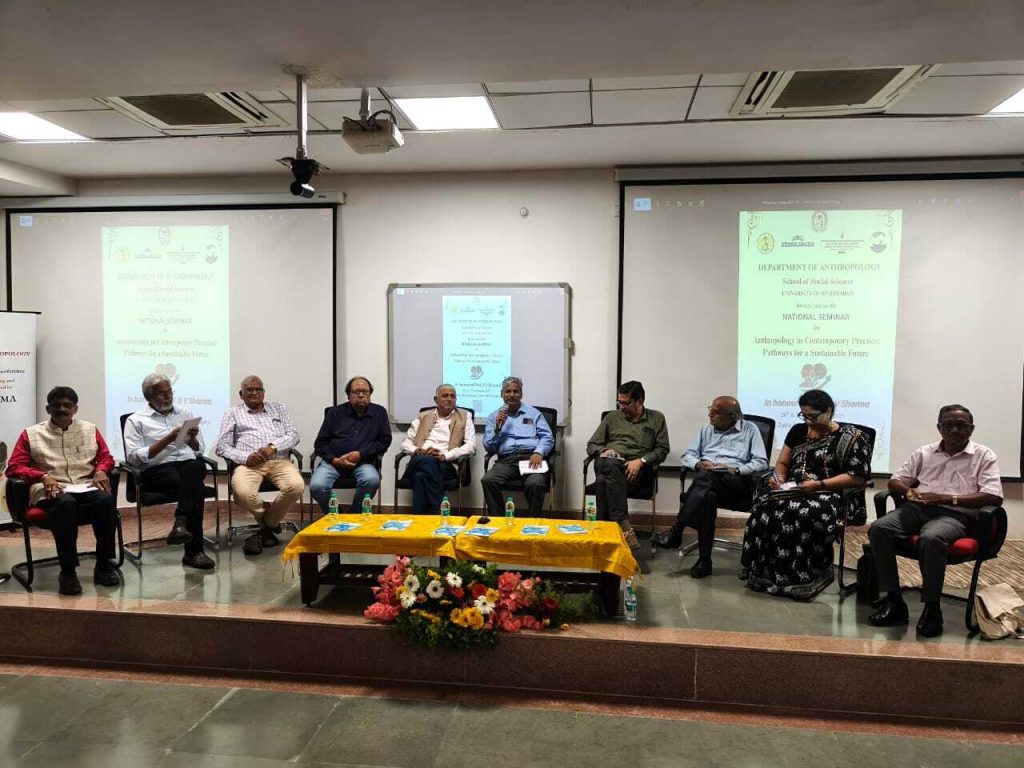
Closing Reflections
The seminar ended with a Valedictory Session chaired by Prof. K.K. Basa, with Prof. Amitabh Pande, as Guest of Honour, who talked about the role of the discipline in contemporary society. Dr. Nanda Kishore Kannuri extended thanks to the speakers, participants, and organisers who ensured the seminar’s success.
Report prepared by Amarjeet Mayanglambam, PhD Scholar, Department of Anthropology, School of Social Sciences.

